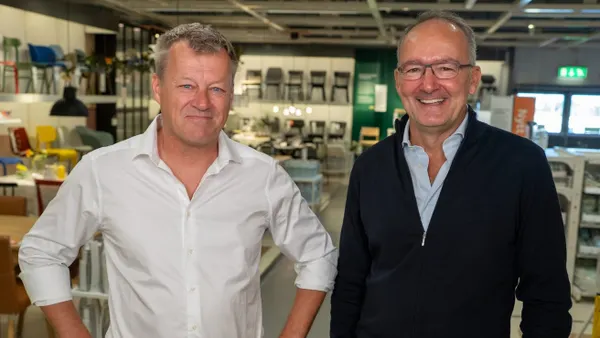Dive Brief:
- Among the best-positioned to take advantage of blockchain are retailers and consumer packaged goods (CPG) manufacturers, according to a new report from Deloitte that argued the technology would "revolutionize" those industries.
- Based on an analysis of over 50 use cases, Deloitte found that the various business applications for blockchain — a distributed ledger that could potentially help track and authenticate products and transactions — can be put into three categories: impact on the consumer, supply chain, and payments and contracts.
- Blockchain's benefits could be passed on to the consumer in the form of savings, increased trust and safer, higher-quality products, Steve Larke, technology consulting partner at Deloitte, said in a press release.
Dive Insight:
Blockchain first came to general awareness as the backbone of cryptocurrencies like bitcoin — and it still is — but businesses are starting to contemplate other uses of the underlying technology.
Deloitte expects retail and CPG companies to reach widespread, long-term success with blockchain technology through careful planning. "Blockchain has the potential to transform the way that individuals and organizations interact, the way that businesses collaborate with each other, the transparency of processes and data, and, ultimately, the productivity and sustainability of our economy," Larke wrote in the report.
The Deloitte report noted that blockchain could be used to create smart loyalty programs, account for a product's creation, locate stolen products, fight counterfeiting, assist in payments, issue targeted recalls, assist in cooperative purchases and even to build a decentralized platform for grocery e-commerce so consumers are able to buy direct from manufacturers. The study also looked at how blockchain could be used to create a connected supply chain, improve store fulfillment and to confirm transactions by smart contracts.
Retailers are taking steps to integrate blockchain technologies, as well as cryptocurrency, into their operations. Walmart has filed patents for the expanded use of blockchain that mention using the technology for vendor payments and digital shopping. American Express is launching a blockchain effort with Boxed to customize rewards for cardholders. Starbucks is piloting a program create transparency by tracing coffee beans from Costa Rica, Colombia and Twanda. JD.com has launched AI Catapult, an accelerator for the development of artificial intelligence and blockchain technologies.
In cryptocurrency, Amazon has registered three domains related to blockchain and cryptocurrency. Newegg is expanding its bitcoin payment option from the U.S. into Canada. And Rakuten, which operates online retail entities in the U.S., is planning a new cryptocurrency called Rakuten Coin that it will support the company's loyalty services.










